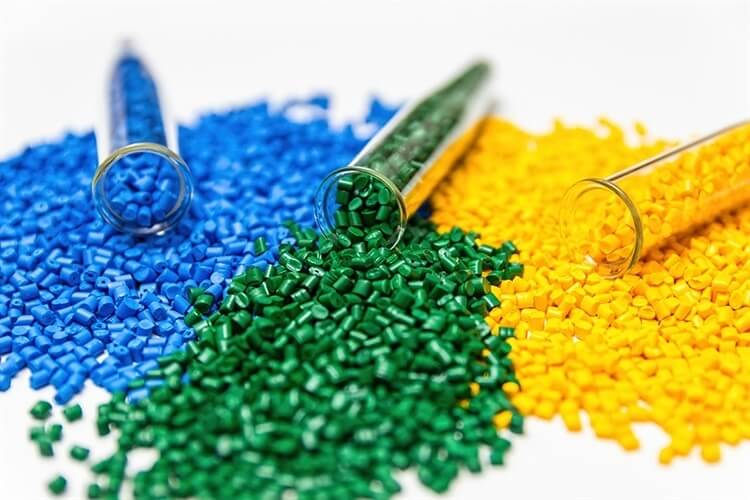Recognizing Polymers: The Science Behind Versatile Products
Recognizing Polymers: The Science Behind Versatile Products
Blog Article
Optimizing the Potential of Polymers: Discover the Diverse Advantages and Practical Makes Use Of
The complex advantages and practical usages of polymers continue to evolve, providing innovative options to complex difficulties. By exploring how polymers can improve product durability, drive sustainability initiatives, reinvent health care services, and pave the way for future technological improvements, we can uncover a globe of opportunities waiting to be harnessed.
Relevance of Polymers in Modern Industries
Polymers play a critical duty in modern-day sectors, working as flexible materials that drive development and efficiency throughout a large range of fields. These complicated particles, composed of repeated subunits, have revolutionized markets such as auto, aerospace, electronics, healthcare, and much more. In the auto market, polymers have actually allowed the growth of lightweight yet durable components, boosting gas efficiency and general efficiency. Aerospace industries count on polymers for their high strength-to-weight proportion, essential for aircraft and spacecraft construction. The electronic devices industry benefits from the insulating homes of polymers, necessary for manufacturing circuit card and digital devices (Polymers). In addition, polymers are thoroughly utilized in the healthcare industry for drug shipment systems, clinical tools, and biocompatible products. Their flexibility, resilience, and cost-effectiveness make polymers important in modern manufacturing procedures, cultivating improvements and driving development in various markets worldwide. Accepting the potential of polymers is key to opening more technologies and dealing with the evolving demands of today's industrial landscape.
Enhancing Product Sturdiness With Polymers
With a concentrate on long life and resilience, integrating advanced polymer technologies into product design has become a cornerstone of improving resilience in contemporary manufacturing procedures. Polymers supply a large range of properties that add to the total resilience of products. One vital benefit is their resistance to rust, chemicals, and weathering, making them ideal for use in different sectors where exposure to harsh conditions prevails.
Furthermore, polymers can be customized to fulfill particular resilience needs, allowing suppliers to tailor items according to their intended usage and anticipated life expectancy. By including polymers right into product components, makers can boost toughness and influence resistance, reducing the probability of damage or use gradually.
Additionally, polymers are lightweight yet tough, providing resilience without including unneeded weight to products. This particular is particularly beneficial in sectors such as aerospace and vehicle, where lightweight materials are crucial for boosting fuel effectiveness and overall that site efficiency.
Sustainability Advancements With Polymer Development
In the realm of modern production and product design, the ingenious application of polymers is driving significant improvements in sustainability methods. Polymer advancement plays an important function in boosting sustainability by offering solutions that minimize ecological effect across different markets. One crucial element where polymers succeed is in allowing the growth of light-weight yet durable products that add to fuel performance in transport and decrease general power consumption. Additionally, the recyclability and biodegradability of specific polymers even more promote lasting techniques by decreasing waste and pollution.
Moreover, innovations in polymer modern technology have actually led to the production of bio-based and sustainable polymers, derived from all-natural sources such as plants, that provide a more lasting option to conventional petroleum-based plastics. These eco-friendly polymers not just help decrease reliance on nonrenewable fuel sources however also reduce greenhouse gas discharges during manufacturing. By integrating these cutting-edge polymers into producing procedures, firms can lower their environmental footprint and relocate in the direction of even more lasting techniques, lining up with international efforts to fight climate adjustment try this web-site and advertise a round economy.
Polymers in Medical Care: Revolutionizing Medical Solutions

One of the crucial areas where polymers are making substantial strides is in the development of targeted medication shipment systems. By encapsulating medications within polymeric nanoparticles or micelles, researchers can boost medication stability, enhance bioavailability, and allow controlled release, bring about extra effective treatment routines with lowered negative effects.
In addition, polymers are instrumental in the field of regenerative medication, where they are used to create scaffolds that simulate the extracellular matrix, supplying assistance for cell development and tissue regrowth. This innovation holds tremendous promise for fixing harmed organs, promoting injury healing, and progressing individualized medication approaches.
Basically, the integration of polymers in medical care is driving development, boosting treatment efficiency, and eventually enhancing client end results in means formerly believed unattainable.
Future Applications and Advancements in Polymer Technology
Progressing at the center of scientific discovery, polymer technology proceeds to pave the method for groundbreaking applications and technologies forming diverse sectors. In addition, polymer nanocomposites are enhancing the mechanical and thermal residential properties of materials, leading to more powerful and lighter elements in aerospace and auto markets. Looking in advance, scientists are exploring the possibility of shape-memory polymers for applications in robotics and biomedical devices, where products that can "remember" and go back to their initial forms offer interesting possibilities for technology.
Verdict

Report this page